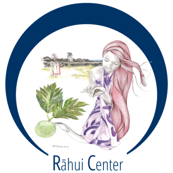Management rooted in Polynesian culture
Our approach is based on rāhui, an ancient and sacred practice of pre-European contact Polynesian societies.
Originally, ari’i (chiefs) or tahu’a (experts) imposed rāhui to temporarily prohibit access to certain areas or resources, thus asserting their authority and respect for natural balances. This prohibition was also reinforced by strong beliefs: transgressing it could bring misfortune, even death.
Today, local communities are reviving this practice to better manage their resources. Decided collectively and managed by a tōmite (management committee), rāhui often applies to part of the lagoon to allow ecosystems to regenerate.
Contemporary rāhui combine local knowledge and scientific tools to better understand their impact and adjust the rules if necessary.

